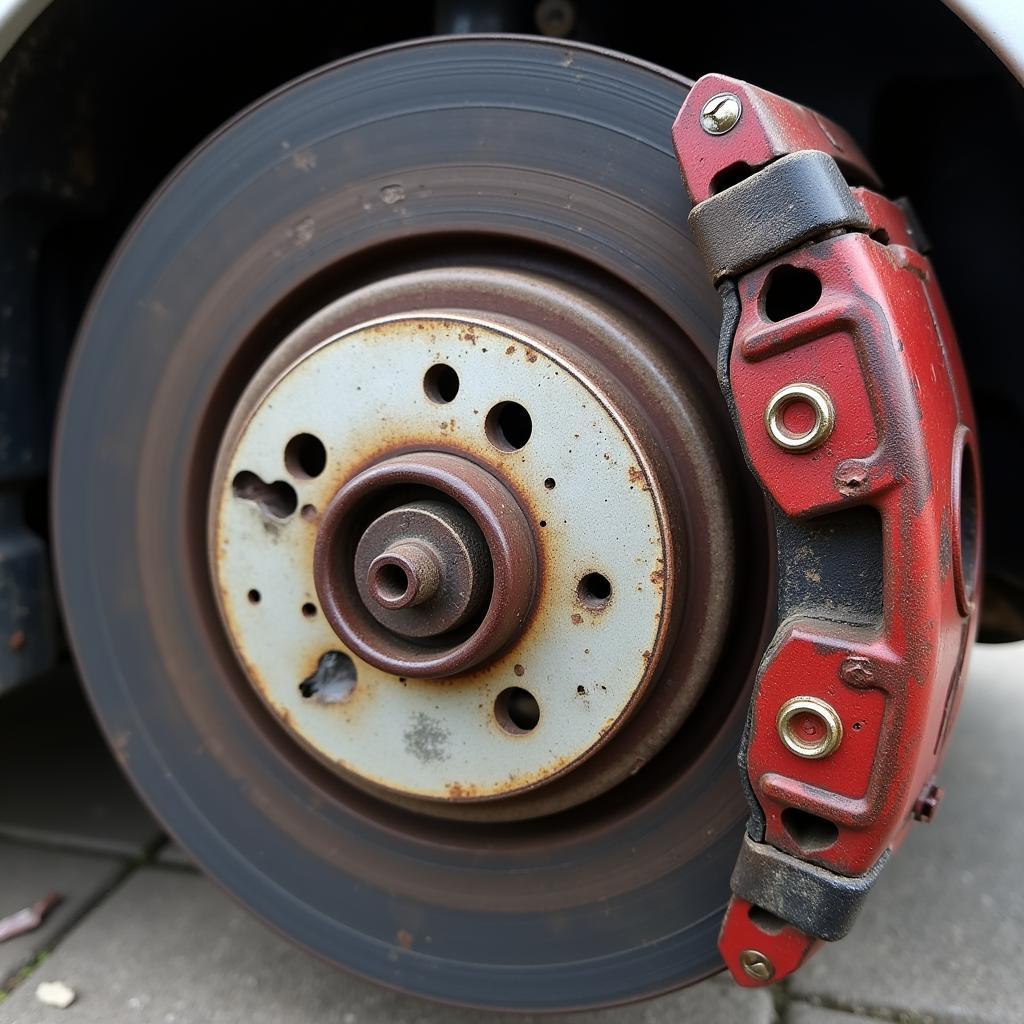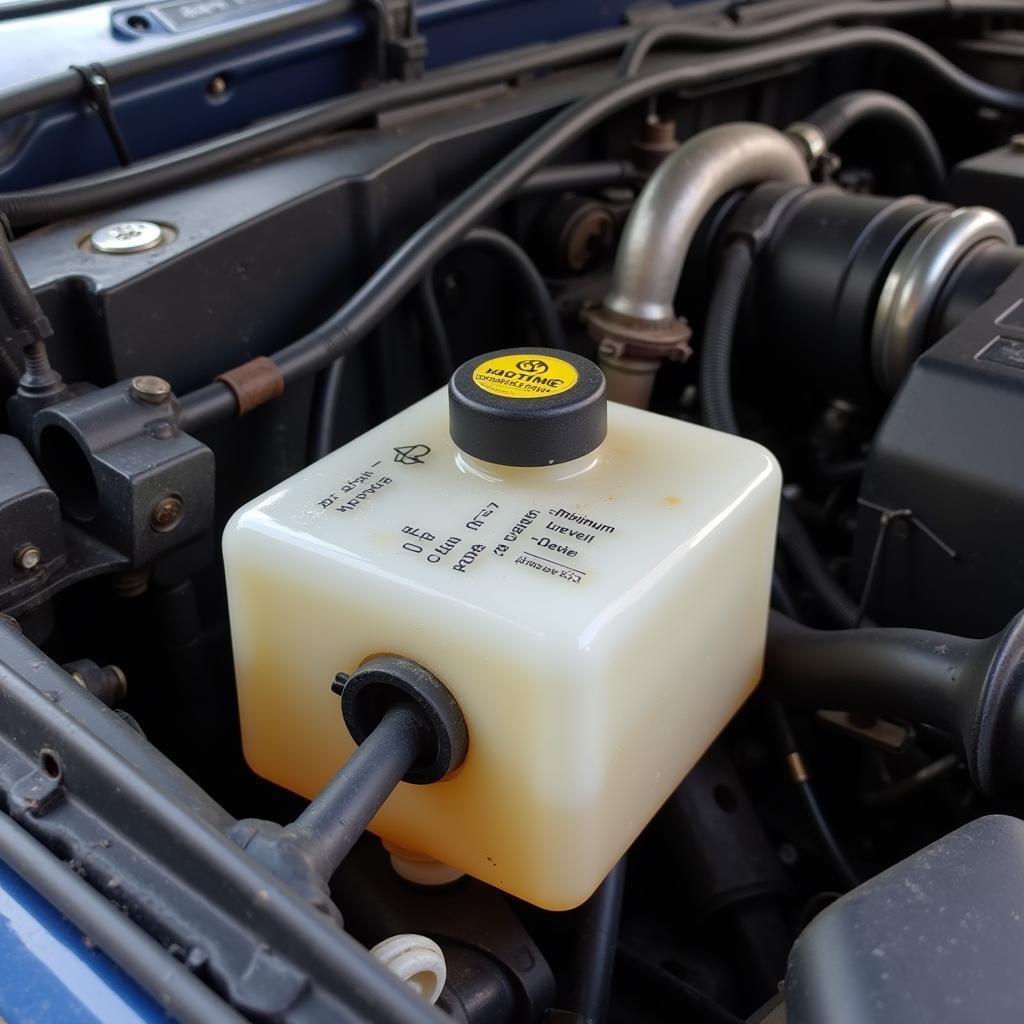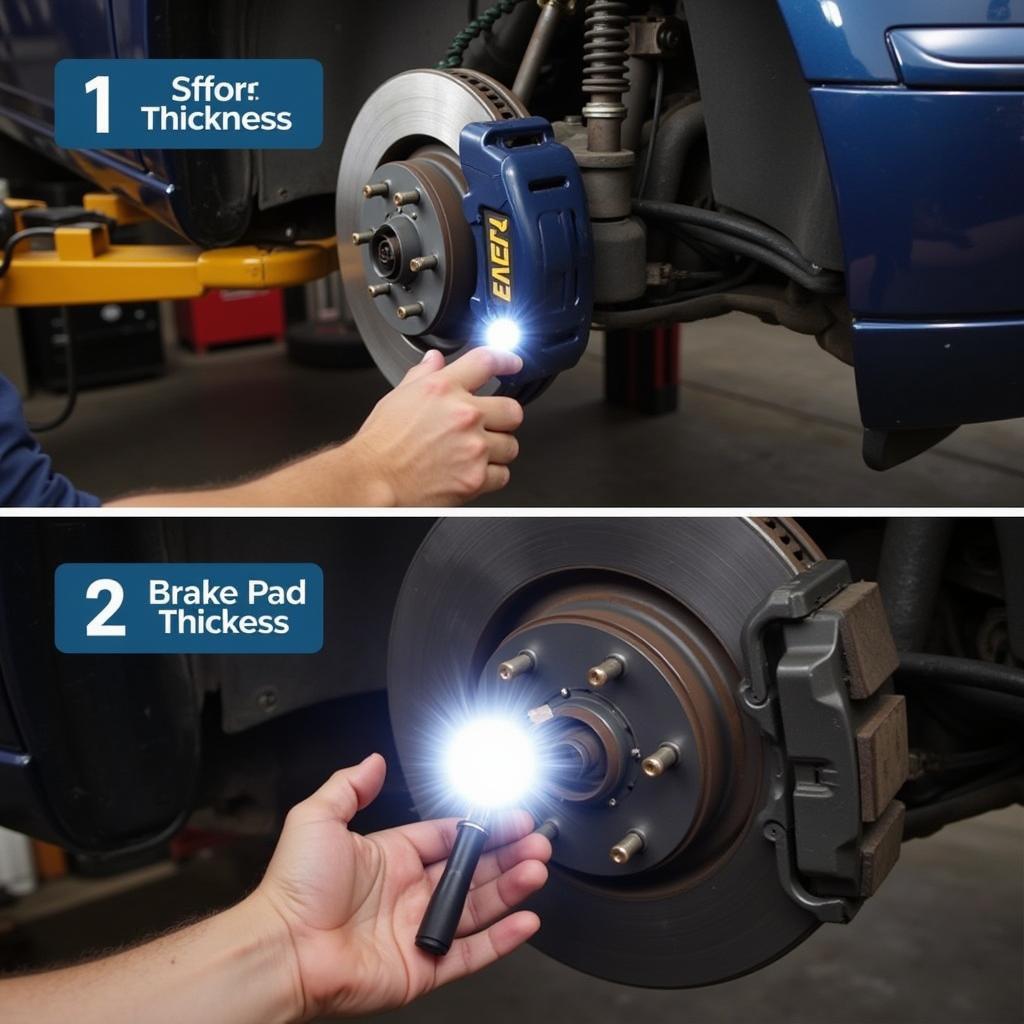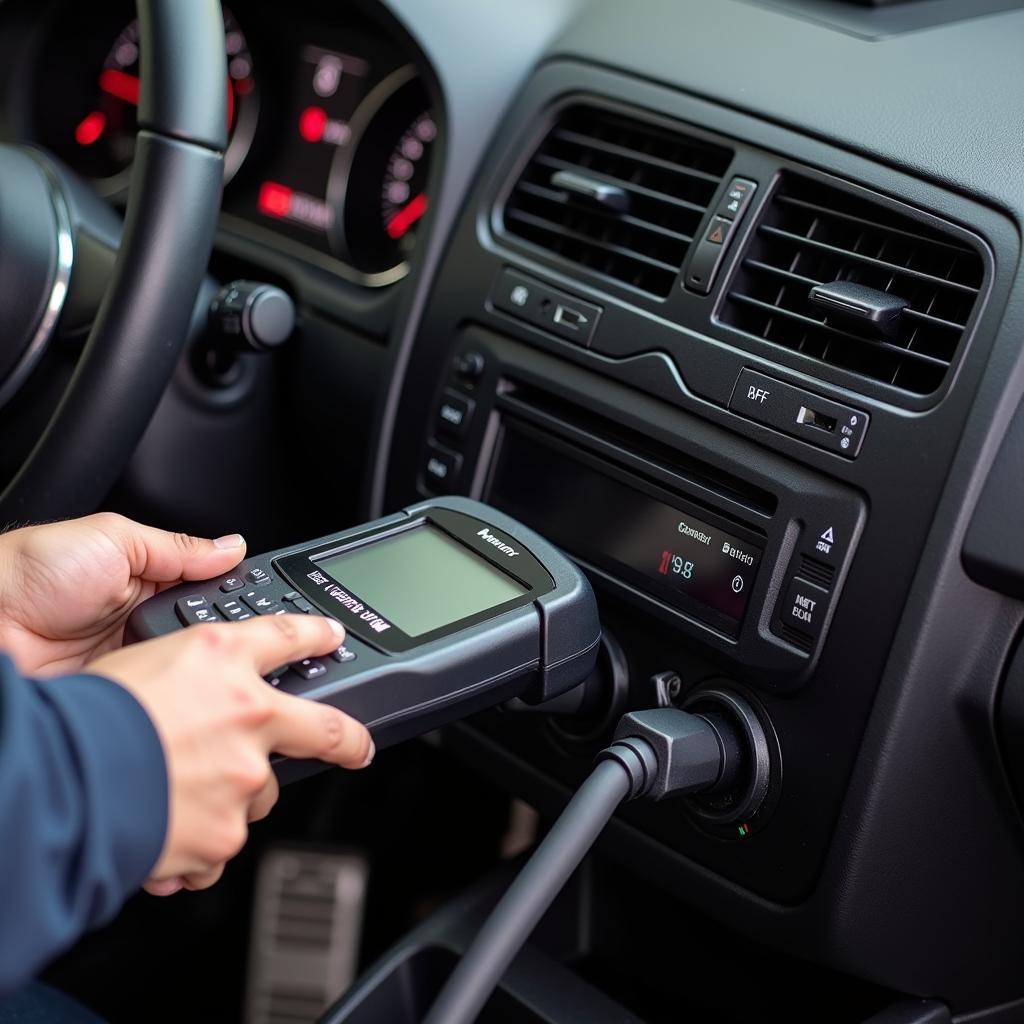The brake pad warning light on your Rover 75 is a crucial safety feature designed to alert you to potential braking issues. When illuminated, it indicates that your brake pads have worn down to a point requiring attention. Ignoring this warning can compromise your braking efficiency and put you at risk. This comprehensive guide explores the common causes of the Rover 75 brake pad warning light illuminating and provides step-by-step solutions to help you address the problem effectively.
Understanding Your Rover 75 Brake Pad Warning Light
Before we delve into the specifics, it’s important to understand how the brake pad warning system works. Your Rover 75 utilizes a sensor embedded within the brake pad material. As the brake pads wear down with use, this sensor eventually comes into contact with the brake rotor. This contact completes a circuit, triggering the warning light on your dashboard.
Common Causes of a Rover 75 Brake Pad Warning Light
While worn brake pads are the most common culprit, several other factors can trigger the brake pad warning light on your Rover 75. Let’s explore some of these possibilities:
1. Worn Brake Pads
As mentioned earlier, the primary reason for the warning light is worn brake pads. Over time, the friction material on the pads wears down, eventually reaching a point where the sensor makes contact with the rotor.
 Worn brake pads on a Rover 75
Worn brake pads on a Rover 75
2. Damaged or Disconnected Brake Pad Sensor
The brake pad sensor itself can be susceptible to damage, especially during brake pad replacements. A damaged wire or a loose connection can disrupt the circuit, leading to a false warning light.
3. Faulty Brake Pad Sensor
Like any electrical component, the brake pad sensor can fail. A faulty sensor might not detect the pad wear accurately, triggering the warning light prematurely or not at all.
4. Low Brake Fluid Level
While not directly related to brake pad wear, low brake fluid levels can also trigger the warning light. The brake system shares a common warning light for both brake pad wear and low fluid levels.
 Brake fluid reservoir on a Rover 75
Brake fluid reservoir on a Rover 75
Troubleshooting the Brake Pad Warning Light
If your Rover 75 brake pad warning light comes on, it’s crucial to address the issue promptly. Follow these steps to diagnose and resolve the problem:
-
Check Brake Fluid Level: Begin by inspecting the brake fluid level in the reservoir. If the fluid level is low, add the appropriate DOT grade brake fluid as specified in your owner’s manual. However, if the fluid level is consistently low, it might indicate a leak in the brake system, requiring immediate professional attention.
-
Inspect Brake Pads: If the brake fluid level is adequate, proceed to inspect the brake pads. You’ll need to remove the wheel to get a clear view. If the brake pad material is worn thin and close to the wear indicator, it’s time for a replacement.
 Inspecting the brake pads on a Rover 75
Inspecting the brake pads on a Rover 75
-
Examine Brake Pad Sensor: While inspecting the brake pads, check the sensor for any visible damage, such as cuts or fraying. Also, ensure the sensor is properly connected to the wiring harness.
-
Test Brake Pad Sensor (Optional): If you suspect a faulty sensor, you can test it using a multimeter. However, this step might require some electrical expertise.
-
Seek Professional Help: If you’re uncomfortable performing these checks yourself or if the problem persists after attempting these steps, it’s best to consult a qualified mechanic specializing in Rover vehicles. They possess the knowledge and tools for accurate diagnosis and repair.
Conclusion
Addressing the brake pad warning light on your Rover 75 is crucial for maintaining optimal braking performance and ensuring your safety on the road. Regular maintenance, including timely brake pad replacements and inspections, can help prevent unexpected brake failures and prolong the lifespan of your braking system.


